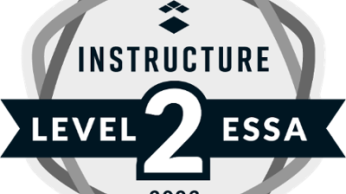Intervention Suite
Our intervention programs provide targeted, research-based support to help struggling elementary and secondary readers build essential literacy skills, igniting their orthographic mapping engines for lifelong reading success. Engaging, structured lessons rooted in and continuously informed by the science of reading, equip educators with knowledge and empower students to make measurable progress and develop confidence in reading.

Evidence-based solutions for effective and timely Elementary Literacy Intervention
Our early intervention programs—Countdown, Blast, and HD Word—are designed to help struggling readers build essential skills in phonemic awareness, phonics, and fluency. These programs provide engaging, hands-on lessons and digital tools that cater to various learning styles, ensuring students receive personalized support that corresponds to their strengths and areas of improvement. Additionally, our programs include specialized strategies for students with learning differences, such as those in special education, ensuring that each learner receives targeted interventions and support tailored to their unique needs.
Solution Overview

Achieve Literacy Success with Elementary Intervention Solutions That Work!
Take the guesswork out of K-5 literacy intervention with programs designed to deliver real results:
- Evidence-Based Approach: Built on proven Science of Reading methodologies to enhance student outcomes
- Scaffolded Learning: Systematically teaches all foundational skills, building towards more advanced concepts
- Interactive and Engaging: Combines multimedia tools and hands-on activities to captivate learners
- Progress Monitoring: Use measurable data to track student growth and guide instructional decisions
- Alignment with Standards: Designed to align with national and state educational requirements
- Teacher-Friendly Tools: Streamlined lesson plans and resources minimize preparation time
All the lessons are built for the teacher and include a thorough explanation of the concepts, routines, and procedures. The lessons are easy to follow so they can be taught by a wide range of educators not just seasoned literacy professionals, and phonics specialists. For those unfamiliar with teaching phonemic awareness and phonics, the guides include incremental professional development for each lesson.
Countdown

Countdown focuses on phonological and phonemic awareness, letter knowledge, phonics, and high-frequency words. It is ideal for small-group or one-on-one instruction, offering personalized support for struggling readers.
- Early Intervention for K–1 and intensive intervention for 1st grade
- Supports early literacy development with a focus on foundational skills
- Flexible and adaptable for use in various settings, including small groups and one-on-one
Blast

Blast builds reading fluency through sequential lessons on phonics, decoding, and phonemic awareness. It offers multisensory resources to engage students' different learning styles.
- Early Intervention for Grades 1-2. Intensive intervention for Grades 2-5
- Accelerates reading fluency through structured, research-based instruction
- Explicit teacher guidance and systematic lesson instruction ensures that critical literacy skills are addressed
HD Word

HD Word focuses on mastering complex word structures to improve reading accuracy and comprehension. It provides interactive tools and flexible practice opportunities for students.
- Early intervention for Grades 2-5. Intensive intervention for Grades 6-12
- Phonics-based approach to support decoding, phonemic awareness, and fluency
- Minimal prep time for teachers, with comprehensive support and professional tips for effective implementation
InferCabulary

InferCabulary accelerates learning by using rich, multi-context encounters to teach words, while also enhancing oral language, background knowledge, and inferencing skills.
- Small-group or one-on-one intervention for Grades 3-5
- A research-proven, multimodal program that mimics natural word learning
- Builds vocabulary while enhancing oral language, inferencing, and background knowledge
- Prepares students for academic success

Achieve Literacy Success with Elementary Intervention Solutions That Work!
Take the guesswork out of K-5 literacy intervention with programs designed to deliver real results:
- Evidence-Based Approach: Built on proven Science of Reading methodologies to enhance student outcomes
- Scaffolded Learning: Systematically teaches all foundational skills, building towards more advanced concepts
- Interactive and Engaging: Combines multimedia tools and hands-on activities to captivate learners
- Progress Monitoring: Use measurable data to track student growth and guide instructional decisions
- Alignment with Standards: Designed to align with national and state educational requirements
- Teacher-Friendly Tools: Streamlined lesson plans and resources minimize preparation time
All the lessons are built for the teacher and include a thorough explanation of the concepts, routines, and procedures. The lessons are easy to follow so they can be taught by a wide range of educators not just seasoned literacy professionals, and phonics specialists. For those unfamiliar with teaching phonemic awareness and phonics, the guides include incremental professional development for each lesson.

Countdown focuses on phonological and phonemic awareness, letter knowledge, phonics, and high-frequency words. It is ideal for small-group or one-on-one instruction, offering personalized support for struggling readers.
- Early Intervention for K–1 and intensive intervention for 1st grade
- Supports early literacy development with a focus on foundational skills
- Flexible and adaptable for use in various settings, including small groups and one-on-one

Blast builds reading fluency through sequential lessons on phonics, decoding, and phonemic awareness. It offers multisensory resources to engage students' different learning styles.
- Early Intervention for Grades 1-2. Intensive intervention for Grades 2-5
- Accelerates reading fluency through structured, research-based instruction
- Explicit teacher guidance and systematic lesson instruction ensures that critical literacy skills are addressed

HD Word focuses on mastering complex word structures to improve reading accuracy and comprehension. It provides interactive tools and flexible practice opportunities for students.
- Early intervention for Grades 2-5. Intensive intervention for Grades 6-12
- Phonics-based approach to support decoding, phonemic awareness, and fluency
- Minimal prep time for teachers, with comprehensive support and professional tips for effective implementation

InferCabulary accelerates learning by using rich, multi-context encounters to teach words, while also enhancing oral language, background knowledge, and inferencing skills.
- Small-group or one-on-one intervention for Grades 3-5
- A research-proven, multimodal program that mimics natural word learning
- Builds vocabulary while enhancing oral language, inferencing, and background knowledge
- Prepares students for academic success
Proven solutions for effective reading intervention for struggling adolescent students
Really Great Reading programs deliver a comprehensive reading intervention for middle and high school students by merging phonics-based decoding with visual vocabulary enhancement. Through engaging lessons and flexible digital tools, these programs accommodate a wide range of learning styles. Students requiring specialized education benefit from customized strategies that focus on their unique needs, ensuring effective support and progress for every learner.
Solution Overview

RGR’s Reading Intervention for Grades 6-12 targets adolescent learners’ decoding and vocabulary deficits, addressing reading fluency and comprehension gaps.
- Streamlined instruction for all
- Measurable data-based instructional decisions
- Interactive & Multimedia-Powered
- Increased Efficiency in Flexible Formats
- Aligned with Standards
HD Word

HD Word focuses on mastering complex word structures to improve reading accuracy and comprehension. It provides interactive tools and flexible practice opportunities for students.
- Small-group or one-on-one intervention for struggling readers in Grades 6-12
- Phonics-based approach to support decoding, phonemic awareness, and fluency
- Minimal prep time for teachers, with comprehensive support and professional tips for effective implementation
InferCabulary

InferCabulary accelerates learning by using rich, multi-context encounters to teach words, while also enhancing oral language, background knowledge, and inferencing skills.
- Rich Word Encounters: Students engage with words in multiple contexts, fostering deeper understanding and learning 150% more words up to four times faster.
- Ease of Use: Simple tools for creating quizzes and activities aligned with reading assignments.
- Small-group or one-on-one intervention for struggling readers in Grades 6-12.

RGR’s Reading Intervention for Grades 6-12 targets adolescent learners’ decoding and vocabulary deficits, addressing reading fluency and comprehension gaps.
- Streamlined instruction for all
- Measurable data-based instructional decisions
- Interactive & Multimedia-Powered
- Increased Efficiency in Flexible Formats
- Aligned with Standards

HD Word focuses on mastering complex word structures to improve reading accuracy and comprehension. It provides interactive tools and flexible practice opportunities for students.
- Small-group or one-on-one intervention for struggling readers in Grades 6-12
- Phonics-based approach to support decoding, phonemic awareness, and fluency
- Minimal prep time for teachers, with comprehensive support and professional tips for effective implementation

InferCabulary accelerates learning by using rich, multi-context encounters to teach words, while also enhancing oral language, background knowledge, and inferencing skills.
- Rich Word Encounters: Students engage with words in multiple contexts, fostering deeper understanding and learning 150% more words up to four times faster.
- Ease of Use: Simple tools for creating quizzes and activities aligned with reading assignments.
- Small-group or one-on-one intervention for struggling readers in Grades 6-12.
Build confidence and skills toward on-grade level
Close literacy gaps with proven interventions designed for grades 2-12. Deliver personalized support to struggling readers with targeted interventions that focus on mastering foundational literacy skills. Engaging lessons, flexible tools, and proven strategies make it easy to meet students where they are and guide them toward success.
Our programs offer specialized interventions for students in special education, providing individualized support tailored to their unique learning needs and ensuring all students, regardless of their challenges, can build the skills they need to succeed.
Solution Overview

Achieve literacy success with reading intervention solutions that deliver!
Take the guesswork out of intensive literacy intervention with programs designed to deliver real results:
- Decoding Focus: Explicit instruction on phonics and multisyllabic word strategies
- Fluency and Comprehension: Build reading accuracy and the skills needed to understand more complex texts
- Interactive & Engaging: Online tools and multisensory materials captivate students while reinforcing key concepts
- Flexible Instruction: Multiple entry points allow students to start at their level and progress at their own pace
- Small-Group Support: Tailored for intervention for small groups of students, providing personalized instruction
- Slow-Paced Progression: Perfect for Tier III intervention, allowing students to build confidence and master foundational skills
Countdown

Countdown focuses on phonological and phonemic awareness, letter knowledge, phonics, and high-frequency words. It is ideal for small-group or one-on-one instruction, offering personalized support for struggling readers.
- Intensive small-group intervention for emerging readers in grades 2-3
- Supports early literacy development with a focus on critical foundational skills
- Flexible and adaptable for use in various settings, including small groups and one-on-one
Blast

Blast builds reading fluency through sequential lessons on phonics, decoding, and phonemic awareness. It offers multisensory resources to engage students' different learning styles.
- Intensive small-group intervention for emerging readers in grades 2-5
- Accelerates reading fluency through structured, research-based instruction
- Engages multiple learning styles with hands-on, visual, auditory, and tactile methods
HD Word

HD Word focuses on mastering complex word structures to improve reading accuracy and comprehension. It provides interactive tools and flexible practice opportunities for students.
- Small-group or one-on-one intervention for struggling readers in grades 3-12
- Phonics-based approach to support decoding, phonemic awareness, and fluency
- Minimal prep time for teachers, with comprehensive support and professional tips for effective implementation
Boost

Boost combines research-backed strategies with engaging, hands-on instruction to help struggling readers improve decoding, fluency, and comprehension.
- Small-group or one-on-one intervention for struggling readers in grades 4-12
- Phonics-based approach to support decoding, fluency, and vocabulary comprehension
- Minimal prep time for teachers, with comprehensive support and professional tips for effective implementation

Achieve literacy success with reading intervention solutions that deliver!
Take the guesswork out of intensive literacy intervention with programs designed to deliver real results:
- Decoding Focus: Explicit instruction on phonics and multisyllabic word strategies
- Fluency and Comprehension: Build reading accuracy and the skills needed to understand more complex texts
- Interactive & Engaging: Online tools and multisensory materials captivate students while reinforcing key concepts
- Flexible Instruction: Multiple entry points allow students to start at their level and progress at their own pace
- Small-Group Support: Tailored for intervention for small groups of students, providing personalized instruction
- Slow-Paced Progression: Perfect for Tier III intervention, allowing students to build confidence and master foundational skills

Countdown focuses on phonological and phonemic awareness, letter knowledge, phonics, and high-frequency words. It is ideal for small-group or one-on-one instruction, offering personalized support for struggling readers.
- Intensive small-group intervention for emerging readers in grades 2-3
- Supports early literacy development with a focus on critical foundational skills
- Flexible and adaptable for use in various settings, including small groups and one-on-one

Blast builds reading fluency through sequential lessons on phonics, decoding, and phonemic awareness. It offers multisensory resources to engage students' different learning styles.
- Intensive small-group intervention for emerging readers in grades 2-5
- Accelerates reading fluency through structured, research-based instruction
- Engages multiple learning styles with hands-on, visual, auditory, and tactile methods

HD Word focuses on mastering complex word structures to improve reading accuracy and comprehension. It provides interactive tools and flexible practice opportunities for students.
- Small-group or one-on-one intervention for struggling readers in grades 3-12
- Phonics-based approach to support decoding, phonemic awareness, and fluency
- Minimal prep time for teachers, with comprehensive support and professional tips for effective implementation

Boost combines research-backed strategies with engaging, hands-on instruction to help struggling readers improve decoding, fluency, and comprehension.
- Small-group or one-on-one intervention for struggling readers in grades 4-12
- Phonics-based approach to support decoding, fluency, and vocabulary comprehension
- Minimal prep time for teachers, with comprehensive support and professional tips for effective implementation
Do You Want Exceptional Student Outcomes?
We're a pioneer in teaching the Science of Reading. Our trusted, proven, easy-to-implement approach ensures exceptional student outcomes. Teachers and students love it. For 18 Years, we've aligned research-based, systematic, structured literacy instruction to classroom practice.





